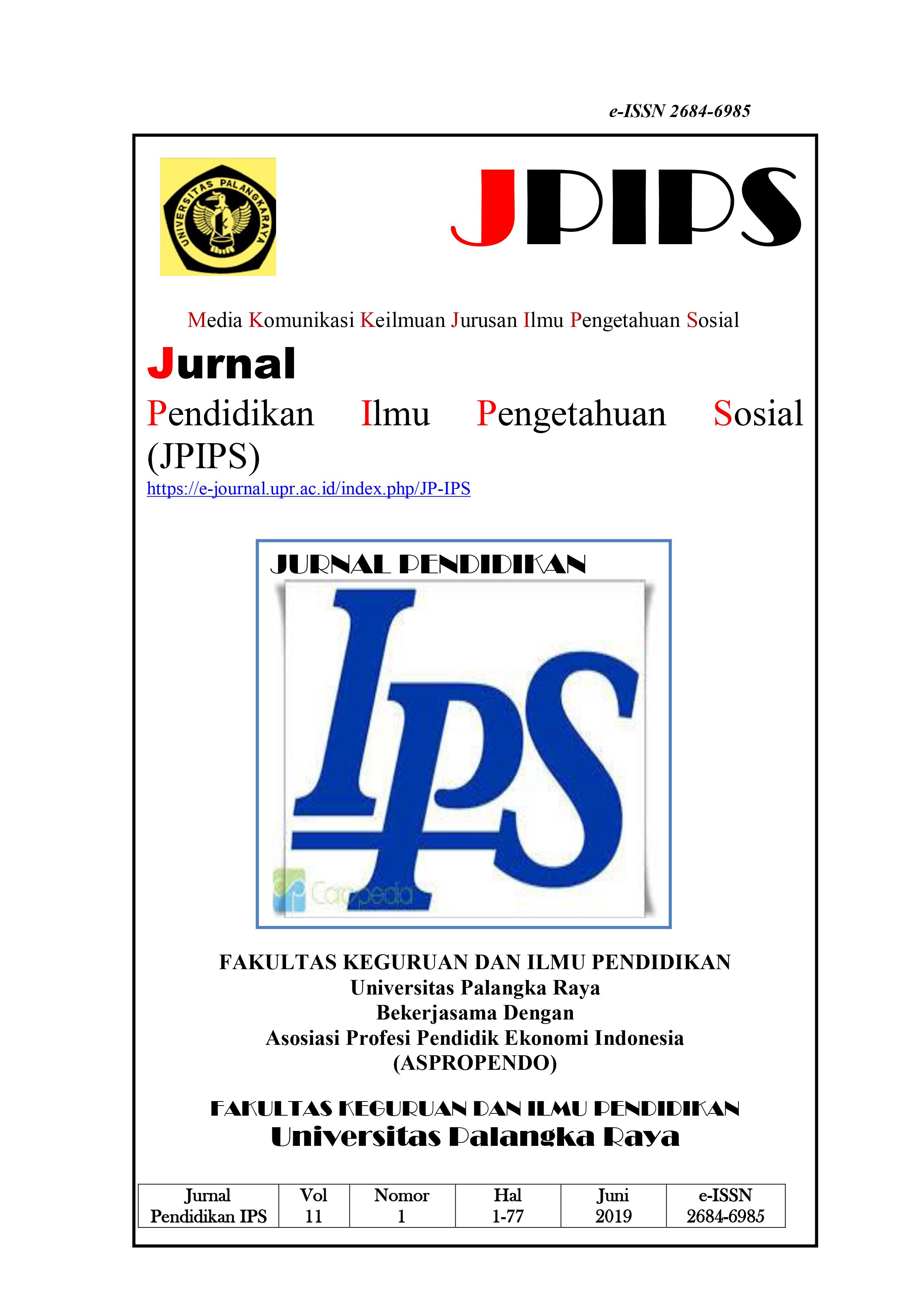Optimalisasi Keaktifan Belajar Melalui Penerapan Model Exo Olo Task Berbantuan Permainan Simkota
Keywords:
Exo Olo Task Model, Learning Activities, Student EngagementAbstract
This study examines the optimization of student learning engagement through the Exo Olo Task learning model using the SIMKOTA game. The background of this research lies in the lack of active student participation in learning activities, highlighting the importance of optimizing engagement to support students in mastering 21st-century skills. The objective of this study is to enhance student engagement in social studies learning. A Classroom Action Research was conducted in Class VIII-8 over two cycles, each consisting of planning, implementation, reflection, and follow-up actions. Data were collected through observation and documentation, and analyzed using both quantitative and qualitative methods. The findings indicate an improvement in engagement levels, from a moderate category in the first cycle to a high category in the second cycle. These results demonstrate that the Exo Olo Task model, integrated with a game-based approach, can significantly optimize student learning engagement
Downloads
References
Aziza, N. (2023). Metodologi penelitian 1 : deskriptif kuantitatif. ResearchGate, July, 166–178.
Budiman, H. M., & Nofrion, N. (2023). Penerapan Model Pembelajaran Exo Olo Task Untuk Meningkatkan Aktivitas Dan Hasil Belajar Siswa. Jurnal PIPSI (Jurnal Pendidikan IPS Indonesia), 8(2), 185. https://doi.org/10.26737/jpipsi.v8i2.4082
Faizah, H., & Kamal, R. (2024). Belajar dan Pembelajaran. Jurnal Basicedu, 8(1), 466–476. https://doi.org/10.31004/basicedu.v8i1.6735
Gunawan, Y. I. P. (2018). Pengaruh motivasi belajar terhadap keaktifan siswa dalam mewujudkan prestasi belajar siswa. Khazanah Akademia, 02(01), 74–84.
Hasanah, Z., & Himami, A. S. (2021). Model Pembelajaran Kooperatif Dalam Menumbuhkan Keaktifan Belajar Siswa. Irsyaduna: Jurnal Studi Kemahasiswaaan, 1(1), 1–13. https://doi.org/10.54437/irsyaduna.v1i1.236
Kusmawati, S. (2024). Penerapan Permainan Mystery Box Untuk Meningkatkan Kreativititas Siswa Pada Pembelajaran Berdiferensiasi Materi IPAS Fase B ( Kelas IV ) SD Negeri Bunulrejo 02 Malang. 1(2019), 968–975.
Machali, I. (2022). Bagaimana Melakukan Penelitian Tindakan Kelas Bagi Guru? Indonesian Journal of Action Research, 1(2), 315–327. https://doi.org/10.14421/ijar.2022.12-21
Mariana, I., Sumarmi, S., Mutia, T., Astina, I. K., & Wijayanto, B. (2024). Pengaruh model pembelajaran Exo Olo Task berbantuan live worksheets terhadap kemampuan berpikir kritis siswa SMA. Jurnal Integrasi Dan Harmoni Inovatif Ilmu-Ilmu Sosial, 3(12), 1316–1330. https://doi.org/10.17977/um063v3i12p1316-1330
Nofrion, N., Rahmanelli, R., Suasti, Y., Khairani, K., Wijayanto, B., Bekti Susetyo, B., Novio, R., & Surtani, S. (2020). EXO OLO TASK Learning Model: What Should Students Do in The Class? 3(1), 188–197. https://doi.org/10.32698/hum0216
Nofrion, S. A., & Ananda, A. (2017). EXO OLO-Task Learning Model: An Introduction To Hots-Oriented Learning Model Based On Lesson Study. Core.Ac.Uk, 8(28), 162–170. https://core.ac.uk/download/pdf/234641071.pdf
Prasetyo, A. D., & Abduh, M. (2021). Peningkatan Keaktifan Belajar Siswa Melalui Model Discovery Learning Di Sekolah Dasar. Jurnal Basicedu, 5(4), 1717–1724. https://doi.org/10.31004/basicedu.v5i4.991
Pratiwi, A. D., Amini, A., Nasution, E. M., Handayani, F., & Mawarny, N. P. (2023). Identifikasi Permasalahan Pembelajaran IPS di Semua Tingkat Pendidikan Formal (SD, SMP dan SMA). El-Mujtama: Jurnal Pengabdian Masyarakat, 3(2), 606–617. https://doi.org/10.47467/elmujtama.v3i3.2818
Ramli, R., & Damopolii, M. (2024). Prinsip-Prinsip Belajar dan Pembelajaran. 3(3).
Ridwan, A. E. (2016). Pendidikan IPS dalam membentuk SDM beradab. Jurnal Pendidikan Ilmu Sosial, 23(1), 27–35. https://doi.org/10.17509/jpis.v23i1.2060
Suparya, I. K. (2022). Kajian Teoritis Perbandingan Kurikulum IPS di Indonesia dan Amerika. Edukasi: Jurnal Pendidikan Dasar, 3(2), 141. https://doi.org/10.55115/edukasi.v3i2.2478
Syaifudin, S. (2021). PENELITIAN TINDAKAN KELAS (Teori dan Aplikasinya Pada Pembelajaran Bahasa Arab). Borneo: Journal of Islamic Studies, 1(2), 1–17.
Swastika, A. I., & Utami, I. W. P. (2025). Penerapan Scaffolding pada Zone of Proximal Development (ZPD) Kelas X DKV-2 Di SMK terhadap Mata Pelajaran Sejarah. Journal of Innovation and Teacher …, 3(3). https://doi.org/10.17977/um084v3i32025p540-548
Tohari, B., & Rahman, A. (2024). Konstruktivisme Lev Semonovich Vygotsky dan JeromeBruner: Model Pembelajaran Aktif dalam PengembanganKemampuan Kognitif Anak. Nusantara: Jurnal Pendidikan Indonesia, 4(1), 209–228.
Utomo, P., Asvio, N., & Prayogi, F. (2024). Metode Penelitian Tindakan Kelas (PTK): Panduan Praktis untuk Guru dan Mahasiswa di Institusi Pendidikan. Pubmedia Jurnal Penelitian Tindakan Kelas Indonesia, 1(4), 19. https://doi.org/10.47134/ptk.v1i4.821














